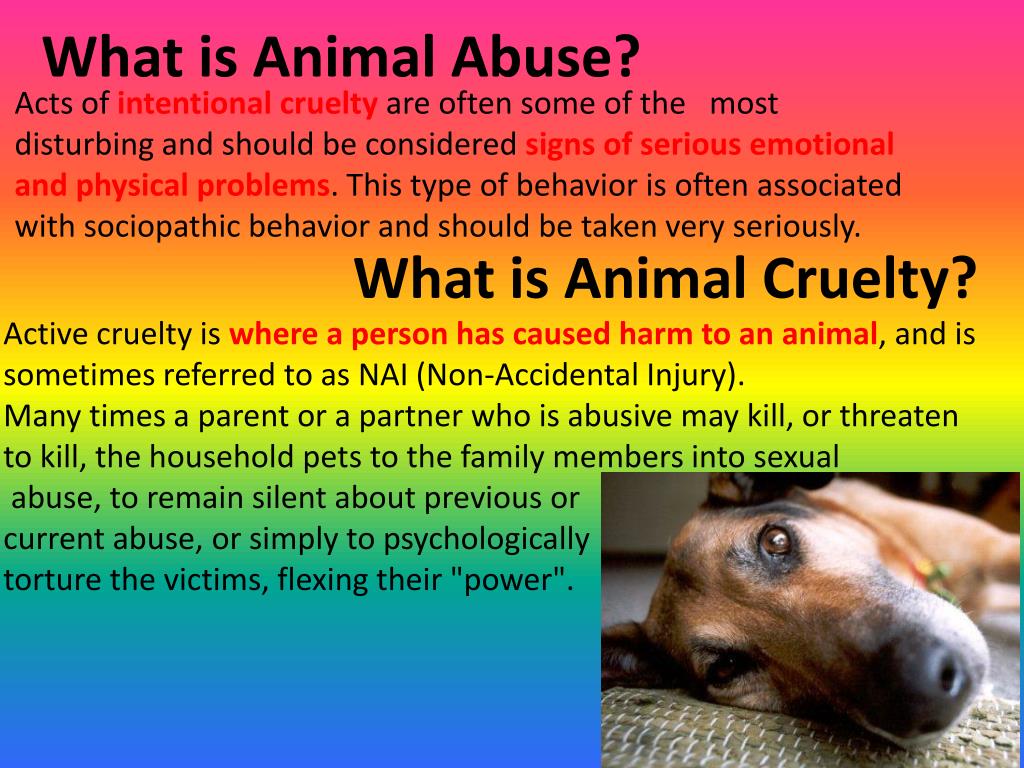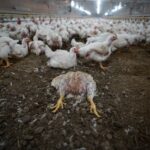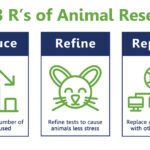Animal cruelty has become a pressing issue that warrants significant attention. It is a multifaceted problem, often entangled with other societal issues, such as domestic violence, mental health struggles, and familial discord. One of the more perplexing questions arises when discussing the intersection of animal abuse and family dynamics, particularly when a step-parent is involved. Can step-parents who cruelly mistreat animals in their care be prosecuted? This question invites a deeper examination of legal frameworks, social perceptions, and psychological motivations.
To understand the legal ramifications of animal abuse inflicted by a step-parent, one must first familiarize oneself with the statutes governing animal cruelty. Most jurisdictions classify animal cruelty as a criminal offense, with varying degrees of severity based on the nature of the abuse—ranging from neglect and abandonment to intentional harm. In many cases, the law recognizes the importance of the link between animal welfare and human welfare, thereby considering the perpetrator’s relationship to the victim—both human and animal.
In numerous states within the United States, laws apply not only to pet owners but also to those possessing, caring for, or otherwise having responsibility for animals. This legal definition typically extends to step-parents, particularly if they assume a caretaker role or are involved in the animal’s daily life. For example, if a step-parent permits neglect or engages in direct acts of cruelty, they can face criminal charges. However, establishing culpability often involves a detailed analysis of the family dynamics at play.
The complexities surrounding step-parent relationships can cloud perceptions of culpability. In some instances, the biological parent may be complicit or may fail to act against abusive behavior. This complicity can create an environment where abuse thrives unchecked. The legal system is often faced with the challenge of discerning where responsibility lies, particularly when the step-parent claims ignorance of the abuse. Herein lies a critical consideration—how the emotional and psychological landscape of the family unit influences actions taken toward animals.
To further unravel the enigma, it is essential to recognize the psychological underpinnings that may contribute to animal abuse by step-parents. According to various studies, individuals who exhibit violent behavior towards animals often harbor unresolved emotional turmoil, which can include feelings of anger, inadequacy, or frustration. For some, an animal may serve as a convenient outlet for their pent-up rage, particularly if they feel powerless in their interpersonal relationships. Thus, the dynamic that exists between the step-parent, the biological parent, and the child can heavily influence the likelihood of animal mistreatment.
Moreover, one cannot ignore the societal tendency to overlook animal cruelty within the confines of familial relationships, particularly when it involves children witnessing the abuse. This normalization of violence can lead to a desensitization towards animal suffering, perpetuating a cycle of abuse that extends not just to animals, but potentially to vulnerable human family members. The disconcerting reality is that children who observe or experience animal cruelty are at an increased risk of emulating similar behaviors in their own relationships, further feeding into a culture of violence.
Legally, prosecutors face a considerable challenge in these cases. Convicting a step-parent for animal abuse may require substantial evidence—eyewitness accounts, veterinary reports, or recordings of the abuse. The burden of proof rest squarely on the shoulders of those seeking justice for the victimized animal, which can be a daunting endeavor when the step-parent and biological parent often collude to protect each other. However, Humane Societies and animal rights organizations increasingly support legislative reforms aimed at closing loopholes that allow abusers to escape prosecution.
Many jurisdictions are now proactive in their approach to animal welfare, offering resources for reporting suspected abuse and ensuring that animals are not treated as mere property in legal proceedings. They recognize the profound impact that animal abuse can have on the emotional and psychological well-being of children. Initiatives that encourage protective legislation focus on informing the public about how to discern the subtle signs of animal abuse, fostering an environment where victims can be rescued, and perpetrators prosecuted.
However, the legal framework is not the sole jurisdictional magic wand to eradicate this malignancy. Preventive measures must also take root within communities, addressing the social and familial circumstances that contribute to a culture of cruelty. Educational campaigns that promote empathy for animals, coupled with programs that support families at risk, can mitigate instances of abuse before they escalate to legal infractions. The nurturing of empathy can foster a more humane society, one that perceives animals not merely as possessions but as sentient beings deserving of respect and care.
Advocating for stringent laws and community awareness is essential, but equally important is the need for robust mental health resources. Individuals exhibiting violent behavior towards animals often require intervention. Psychological counseling can provide these individuals with healthier outlets for their emotions, breaking the cycle of abuse that may extend through generations. In emphasizing the mental wellness aspect of addressing animal cruelty, preventative strategies can be developed that foster both human and animal well-being.
In conclusion, the prosecution of step-parents for animal abuse is not only possible but necessary. The legal system, while imperfect, holds the potential to address these offenses effectively. However, systemic changes are required to create a culture of accountability and compassion towards all beings, emphasizing protecting the vulnerable—both in animal and human forms. With concerted efforts from legislation, community awareness, and education, society can forge a path leading towards a more humane future where animal cruelty is unequivocally condemned and prosecuted.








